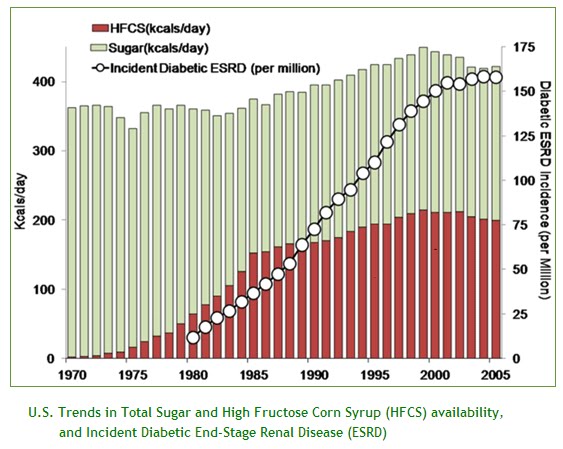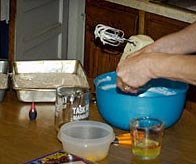High cholesterol is indeed something to be concerned about. However, elevated cholesterol in and of itself is NOT the problem, rather, it is an
indicator of another problem- likely some other diet/habit/lifestyle factor that is impeding your body's ability to effectively reach "health". (Too
low cholesterol can be just as much of an indicator of something awry as well.) To specifically target lowering cholesterol by taking drugs that drastically interfere with your body's own internal mechanisms just seems imprudent, if not downright dangerous. It is largely analogous to the idea of "curing" acne by slathering chemicals all over your face; you aren't addressing the inherent problem, you are merely masking the symptoms. Likewise, feel that our dietary and pharmaceutical approaches to managing cholesterol are in serious need of re-evaluation.
Let me first introduce you to Dr. William Davis, author of
The Heart Scan Blog and founder of
Track Your Plaque. This guy knows how to reverse all coronary risk factors, atherogenesis etc, he has got cardiovascular disease DOWN. For years he has been treating people with a regimen of wheat and fructose elimination, and fish oil and niacin supplementation. He is giving real people real results, everyday. In this article,
Triglycerides and Small LDL: The Odd Couple, he addresses the interaction of diet and cholesterol:
"Consume any carbohydrate-candy, cookies, whole grain bread-and it turns to sugar within minutes after swallowing. In the liver, sugars are converted to triglycerides, which are then released into the bloodstream as very low-density lipoproteins, or VLDL.
VLDL particles are triglyceride-rich, commonly 30-60% triglycerides by weight. Because VLDL enters the bloodstream that is crowded with a number of other lipoproteins, such as LDL and HDL, VLDL particles influence the composition of these other particles. VLDL generously contributes triglycerides to LDL and HDL particles.
Once LDL and HDL particles are enriched in triglycerides, they become the target of an abnormal metabolic pathway that converts them to small LDL particles and small HDL particles. Small LDL particles are much more likely to cause heart disease, since they are more likely to provoke inflammatory reactions and are more oxidation-prone. Small HDL particles are less effective at providing the protective functions, including antioxidant functions."
Let's consider this, and then look at some facts. As a country, we have
increased carbohydrate consumption, and reduced fat intake. So much for the idea that "fat causes heart disease" that has been the overarching message in this country for the past few decades. And just look at the
increase in consumption of sugars and high fructose corn syrup, and it is certainly no news flash how diabetes rates have soared as well:
 |
| Can you say, yikes?! |
It is of course important to consider the quality of carbohydrates we are consuming as well. But even as far as the "healthy" foods we are so adamantly told to consume- the whole-wheat and whole-grain products, these can't be bad, right? Dr. Davis continues:
In fact, with few exceptions, whole wheat and other grain products increase blood sugar more than any other known food. Yes, the foods we are advised to eat more of, "healthy, whole grains," raise blood sugar higher than many candy bars. (The exceptions are dried powdered starches, like cornstarch, potato starch, rice starch, and tapioca starch. Incidentally, these are the foods used to make most "gluten-free" foods.) So carbohydrates, especially wheat products, also increase triglycerides and VLDL, which thereby increase production of small LDL and small HDL particles."
Now, let's take a look at the
trends in consumption of wheat products:

You can see consumption has increased rather dramatically over the past decades. Heart disease & other diseases are at all times too. Coincidence? Correlation and not causation? Perhaps... moving along.
One of my favorite sites is the widely read Whole Health Source run by Stephan Guyenet, PhD in neurobiology. He covers so many interesting topics from health and disease issues, to traditional foods and indigenous diets. In
this article, he presents another facet to the cholesterol/diet/heart disease conversation, about oxidized LDL (oxLDL) and cardiac risk:
"oxLDL is formed when the lipids in LDL particles react with oxygen and break down. This happens specifically to the unsaturated fats in LDL, because saturated fats, by their chemical nature, are very resistant to oxidative damage. Polyunsaturated fats are much more susceptible to oxidative damage than saturated or monounsaturated fats. Linoleic acid (the omega-6 fatty acid found abundantly in industrial seed oils) is the main polyunsaturated fatty acid in LDL.
oxLDL has turned out to be a very sensitive marker of cardiac risk, surpassing traditional markers like LDL, HDL, and triglycerides in most studies to date. Since the discovery of sensitive assays that detect oxidized LDL drawn directly from patient blood, a number of studies have been published supporting its ability to detect atherosclerosis (plaque buildup in the arteries), heart attack risk and even the metabolic syndrome. In a large prospective study by Meisinger and colleagues, participants with high oxLDL had a 4.25 higher risk of heart attack than patients with lower oxLDL. oxLDL blew away all other blood lipid markers by nearly a factor of two.
Regular, non-oxidized LDL has few properties that would make it a suspect in atherosclerosis. It's just a little particle carrying cholesterol and fats from the liver to other organs. As soon as it oxidizes, however, it becomes pro-inflammatory, immunogenic, damaging to the vessel wall, and most importantly, capable of transforming immune cells called macrophages into foam cells, a major constituent of arterial plaque."
So, what increases the amount of oxLDL in your body? Well, for one:
"Dietary linoleic acid increases LDL oxidation."
"Substantial amounts of data have been accumulated to show that LA is a pro-oxidative and proinflammatory molecule (10–12) that can induce endothelial cell activation and dysfunction."
So what foods are high sources of linoleic acid (also known as Omega-6 polyunsaturated fat)? Well, first and foremost, all industrial, refined seed and grain oils are
definitely at the top of the list. Vegetable oils, soybean oil (more often than not, vegetable oil
means soybean oil), safflower, corn, canola, cottonseed, and sunflower oils, and subsequently margarines and commercial mayonnaises should probably be avoided. Grains and grain products are also very high in Omega 6 fats. Here's something scary: look at trends in
fats/oil consumption over the past couple decades. even scarier - take a look at
soy oil specifically.
 |
| Yeah, this stuff... |
So what fats have the
least amounts of linoleic acid? Lard, butter, olive oil, coconut oil- all generally regarded as heart and artery-destroying fats (except olive oil). But look, consumption of animal fats (lard, butter, tallow) has
stayed pretty steady if not slightly decreased, despite the rapidly increasing rates of heart disease, diabetes, cancer etc. And while animal fats are demonized for their highly-saturated nature, there is no denying that these are real, whole foods which have sustained cultures for millenia (and all life, ever since animals started eating one another... say a few hundred million years ago?). They are pretty darn easy to obtain, unlike oils like corn and soy which would be virtually impossible to consume if not for industrial processing and manufacturing.
So let's re cap. As a country, we have decreased fat consumption, increased carb consumption, increased consumption of sugars, "healthy" grains, and franken-fats. This gives us worsened cholesterol status, elevated triglycerides from sugar and grain consumption, and plenty of oxidation and inflammation from refined industrial vegetable oils. Yet we still largely blame butter and bacon for causing heart disease. So would avoiding all the aforementioned items be the be-all and end-all to beating heart disease? (And complete avoidance would certainly take a fair amount of ingredient nazi-ing and general non compliance) Well I can't be sure exactly. Although I can be sure that eliminating added/refined sugars, minimizing flour consumption, and complete avoidance of industrial refined oils certainly wouldn't be of any detriment to your health...


 2 eggs beaten
2 eggs beaten


